Extension cords are commonly purchased power solutions in many situations. You can use them in your home or office, on your job site, for yard work, and more. They are used to provide power to hard to reach places or when you are moving around and need the power to follow you, like in yard work.
Are extension cords safe or not is the great debate.
They can be dangerous or a safety hazard depending on the location of the job. Cords lying around all over the place are a tripping hazard or even cause shock. If you are working with damaged cords near or on wet surfaces, electrical shock is likely. Extension cords are advised for temporary use and are not safe for use permanently.
Extension cords are designed to handle many different power solutions. Not all cords are made the same or used for the same reasons. If you are using an improper cord you can cause your appliance to die or overheat.
Know how many amps are required of the appliances you are using. High-powered tools require a cord that can handle a greater electrical load.
PRO TIP: Check your tool or appliance’s manual to find out the specific requirements necessary to power your items.
Cord length and thickness will tell you how much power your extension cord can handle. Resistance increases with the length of the cord. Resistance decreases with diameter. This means the longer your cord the thicker the wire is required to handle a full rating.
AWG ratings are listed to help identify the wire thickness. AWG stands for American Wire Gauge and is a standard in North America. The number on the cable jacket alongside the AWG helps to identify the thickness of the wire. The lower the number the thicker the wire.

Voltage drop can occur on a long extension cord for many reasons. The cord could be too long or the wire is not thick enough. Voltage drop can occur when turning on a tool that requires a large initial surge of power. When voltage drop occurs it means the cord can be significantly different from the power source side of the cord than the end of the cord.
Operating more than one item with a single extension cord makes the problem worse.
When the cord is longer it produces more heat due to resistance. When using a long cord in this manner it could become a fire hazard. Long heat-producing cords laying in dry brush or under your rug can cause a fire. This is even truer if the cord is damaged in some way.
Long cords are more likely to get damaged because of the manner they are used. They are pulled, drug, thrown around like a piece of garbage. The more they are likely to become damaged than other power solutions. The cords can become pinched in a window or door, their protective covering can be ripped or torn when dragged on the concrete or around corners in your home, and they can be sliced by tools or other items often used or stored near an extension cord.

Safety first. Always use a cord rated for the power you need and never use a cord longer than you need for your project. Check your cords for signs of any damage and stop usage immediately if damage has occurred. Damage includes; rips, tears, cuts, fraying, exposed wires, and more.
It is advised to check the Amps required on the tools, appliances, and other electronics you will power with your extension cords and purchase higher than needed. This will allow for some extra power in your cord and the ability to use the length more efficiently.
If you have any questions regarding voltage drop or your specific equipment powered using an extension cord please reach out for a FREE consultation with one of our Sales Engineers today. We are here to help you any day or time.




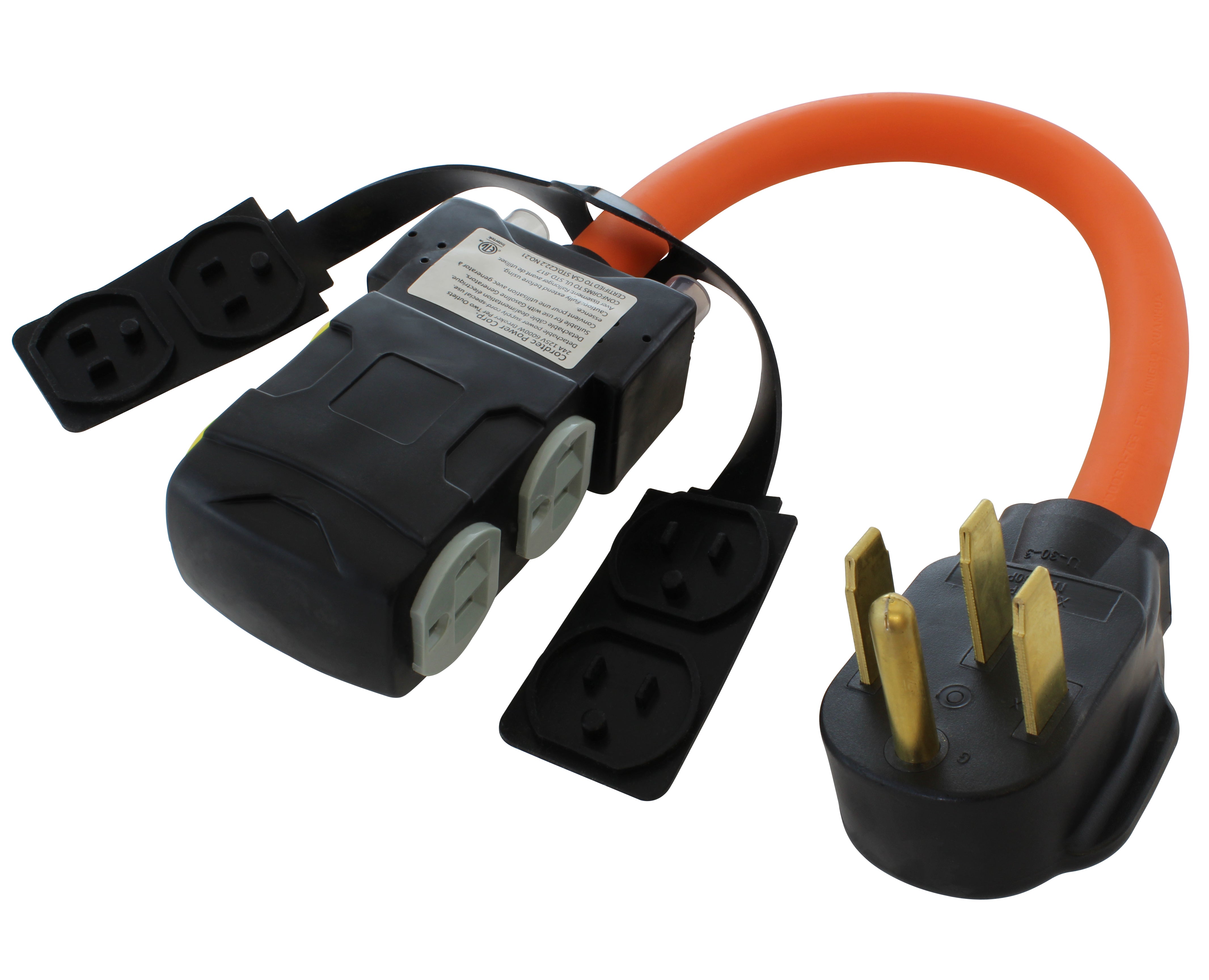
![AC WORKS® [ASINSS2PBX-G] 50A Locking 4-Wire CS6375/ SS2-50 Heavy-Duty Transfer Switch Inlet Box](http://acworks.com/cdn/shop/files/ASINSS2PBX-0_0206b362-7c90-42a5-8754-0685c13dab7e.jpg?v=1758051675&width=2500)
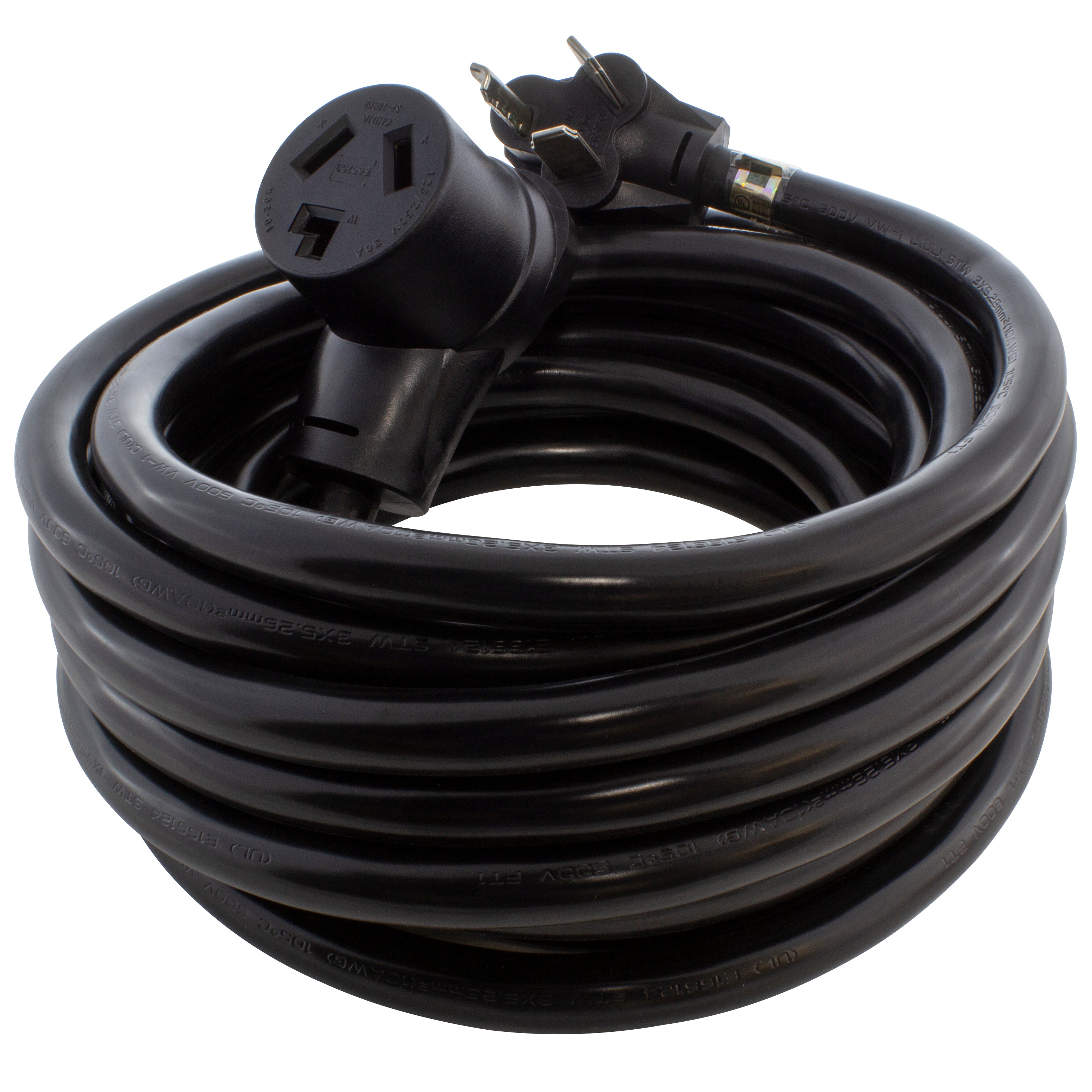
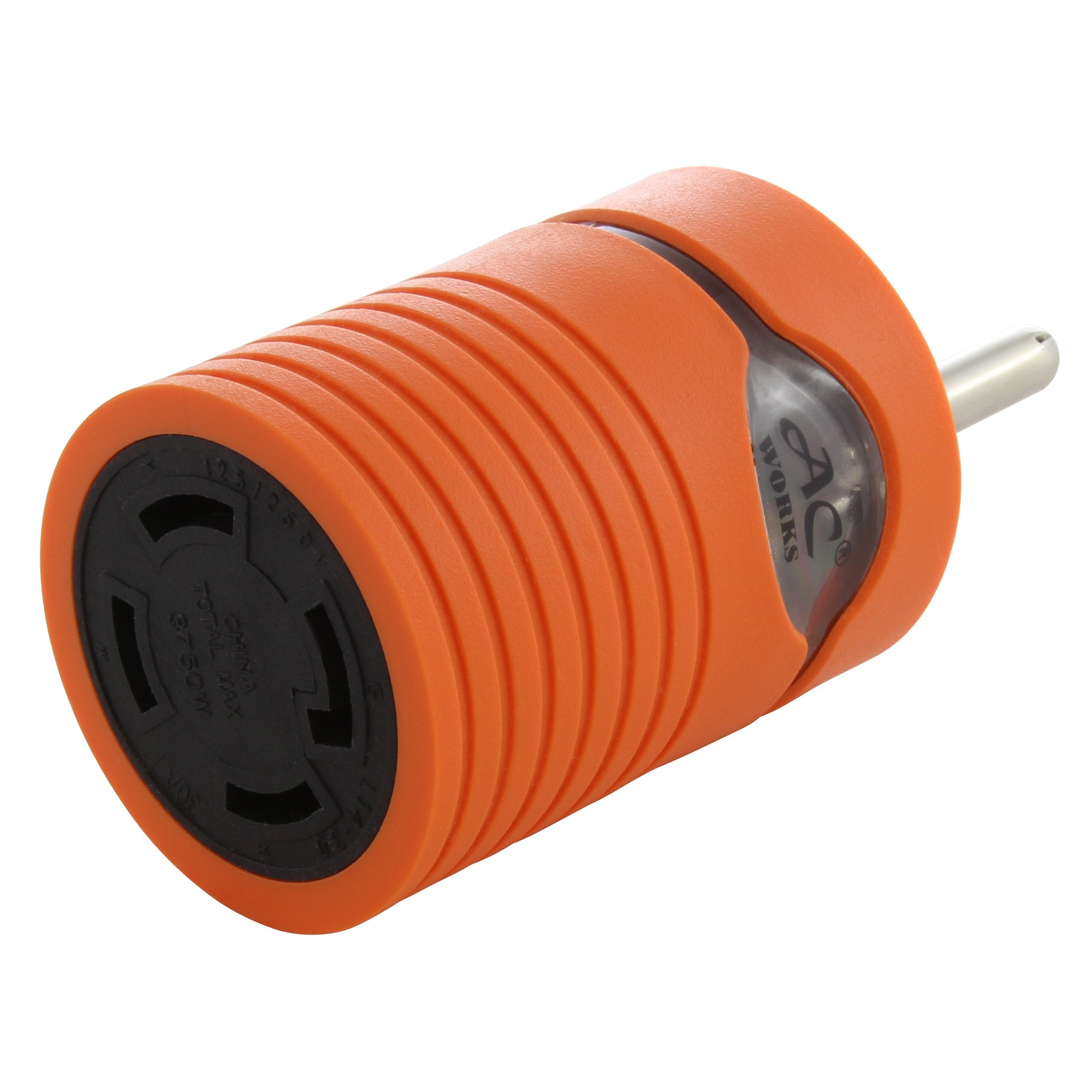
![AC WORKS® [S1430CBF520] 1.5FT 14-30P 4-Prong Dryer Plug to (4) Household Outlets with 24A Breaker](http://acworks.com/cdn/shop/products/S1430CBF520.jpg?v=1666103519&width=4656)
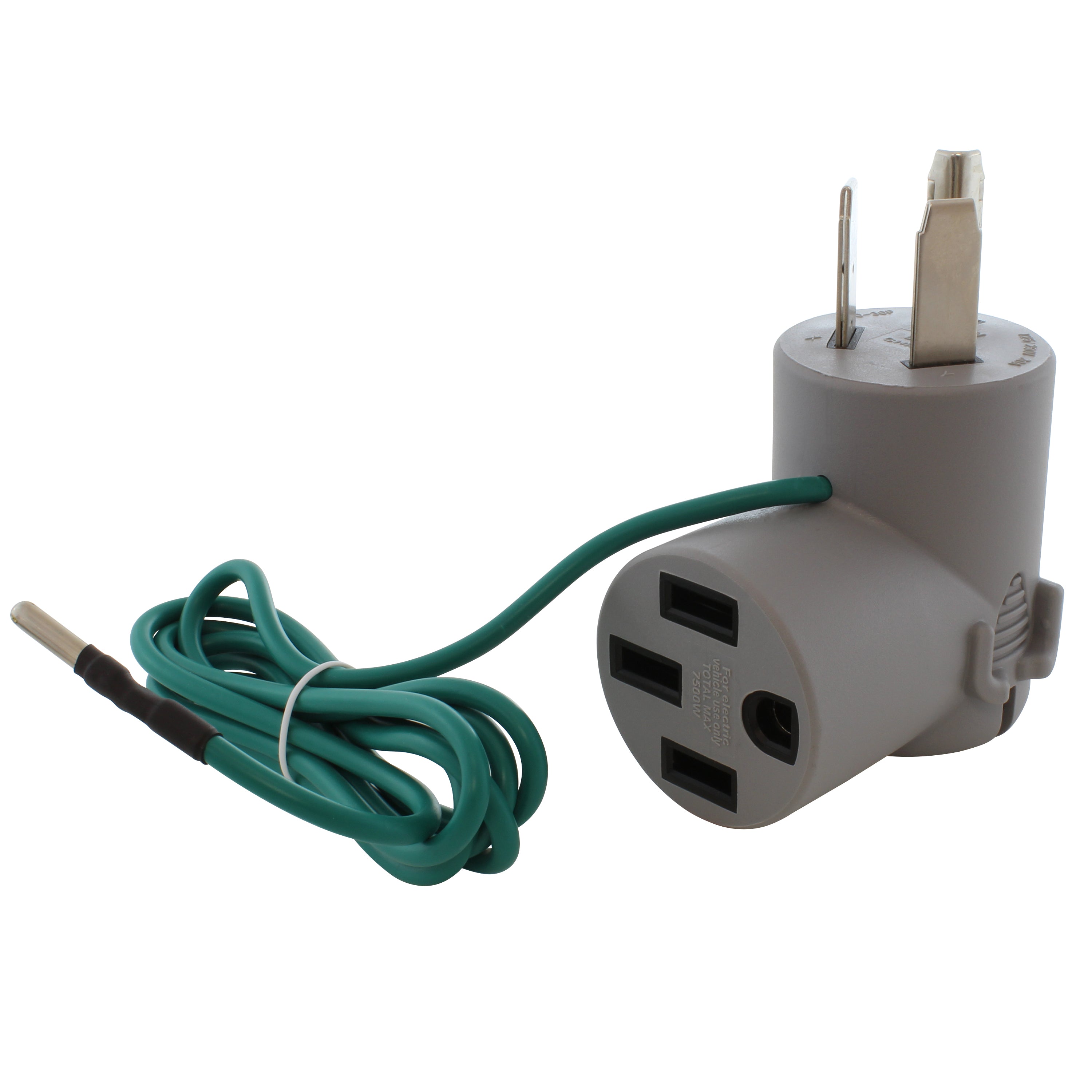
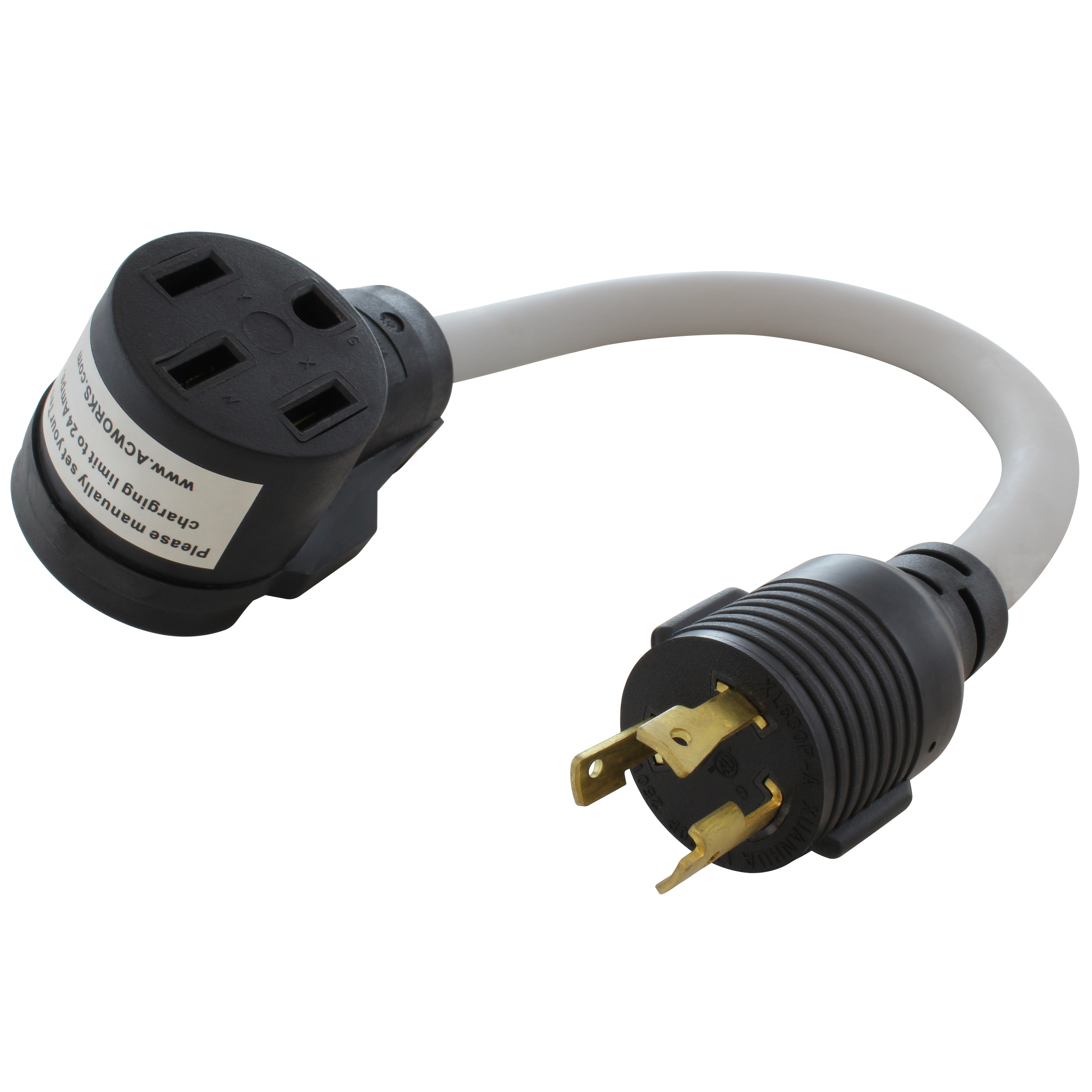
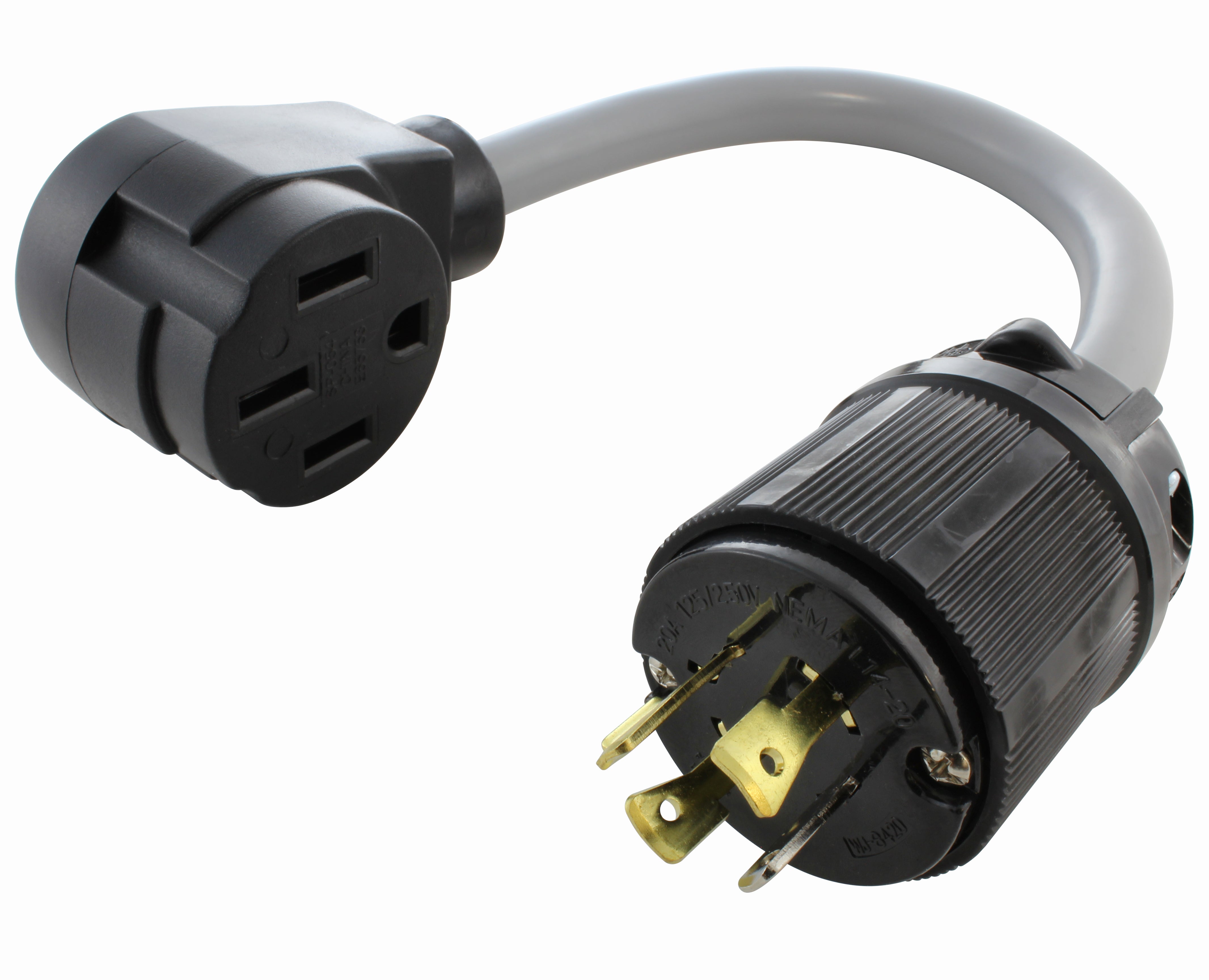
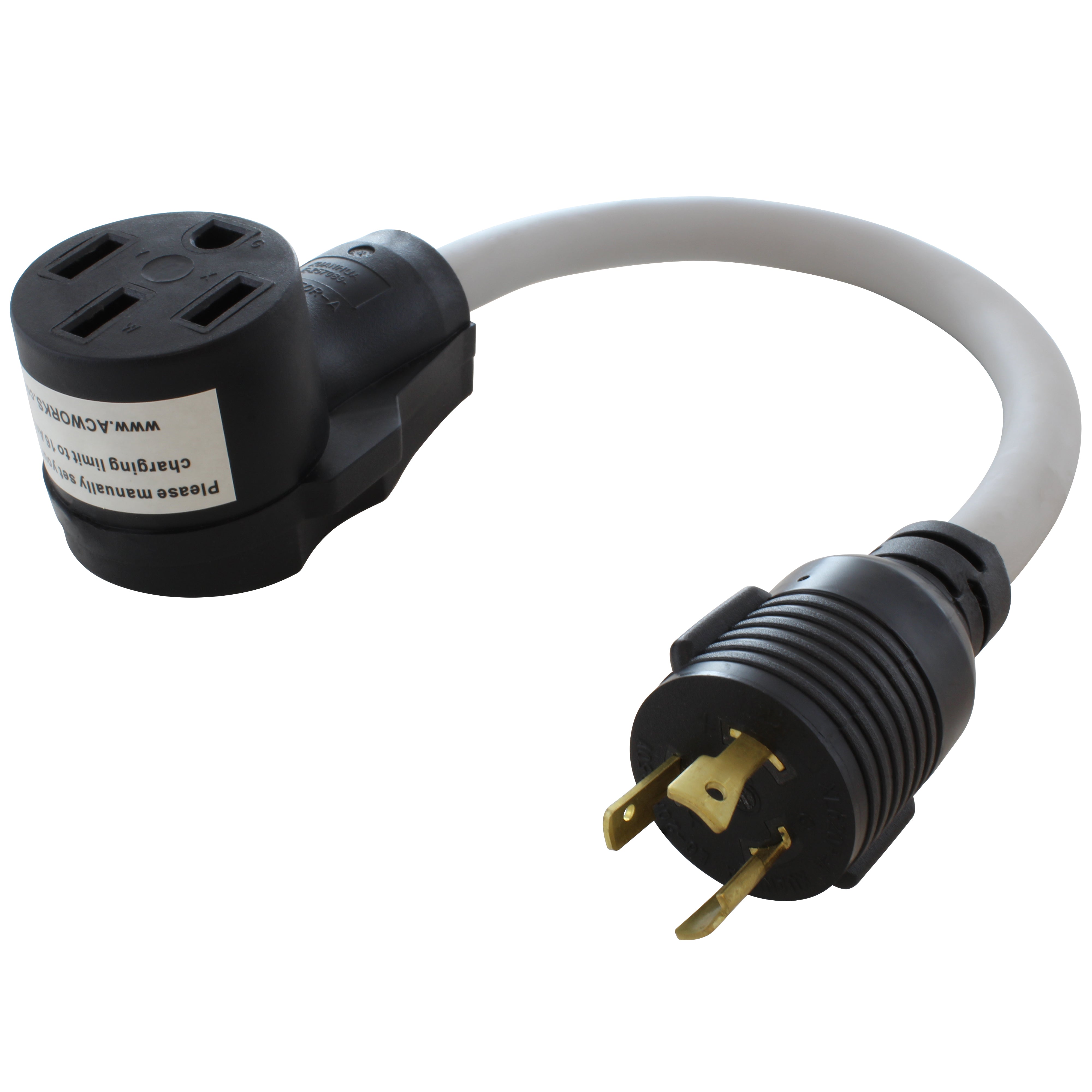
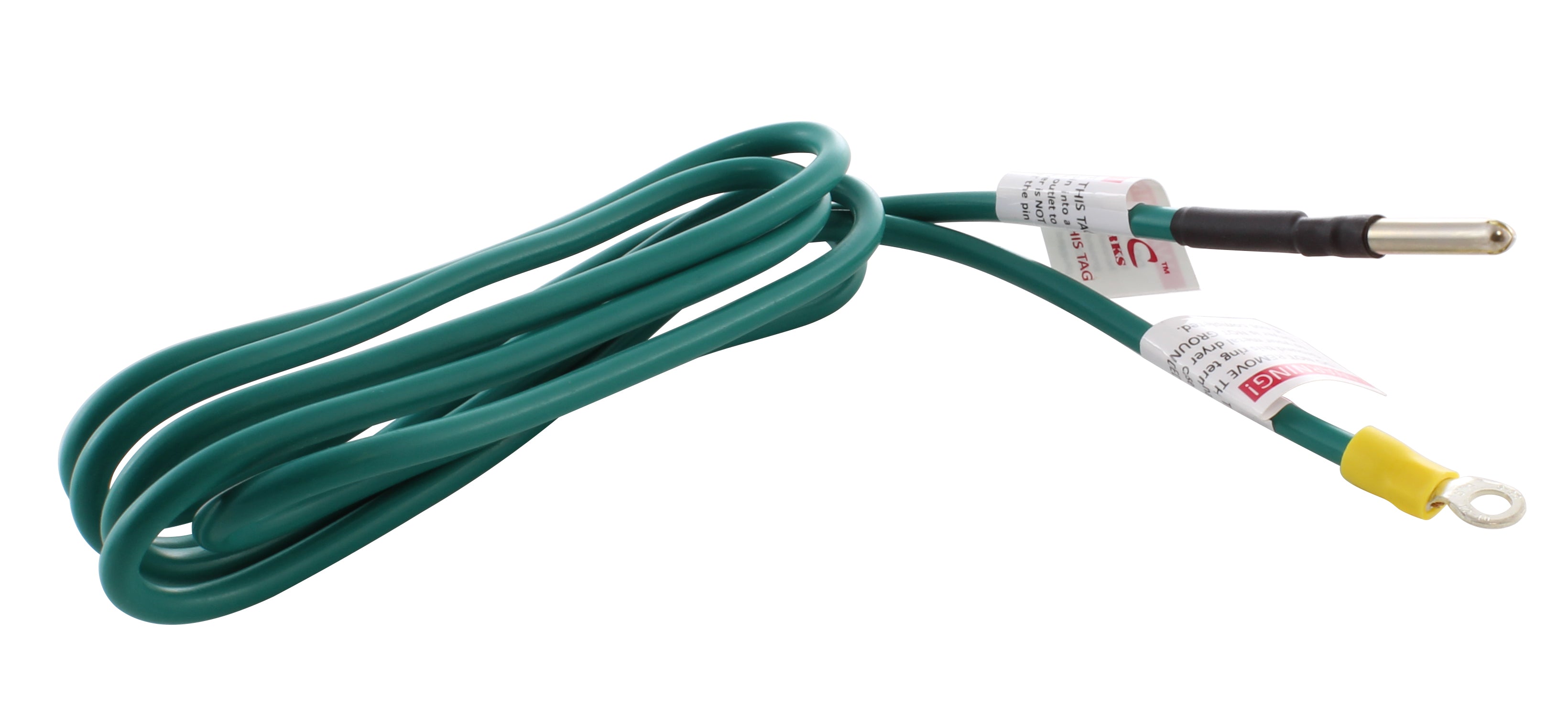
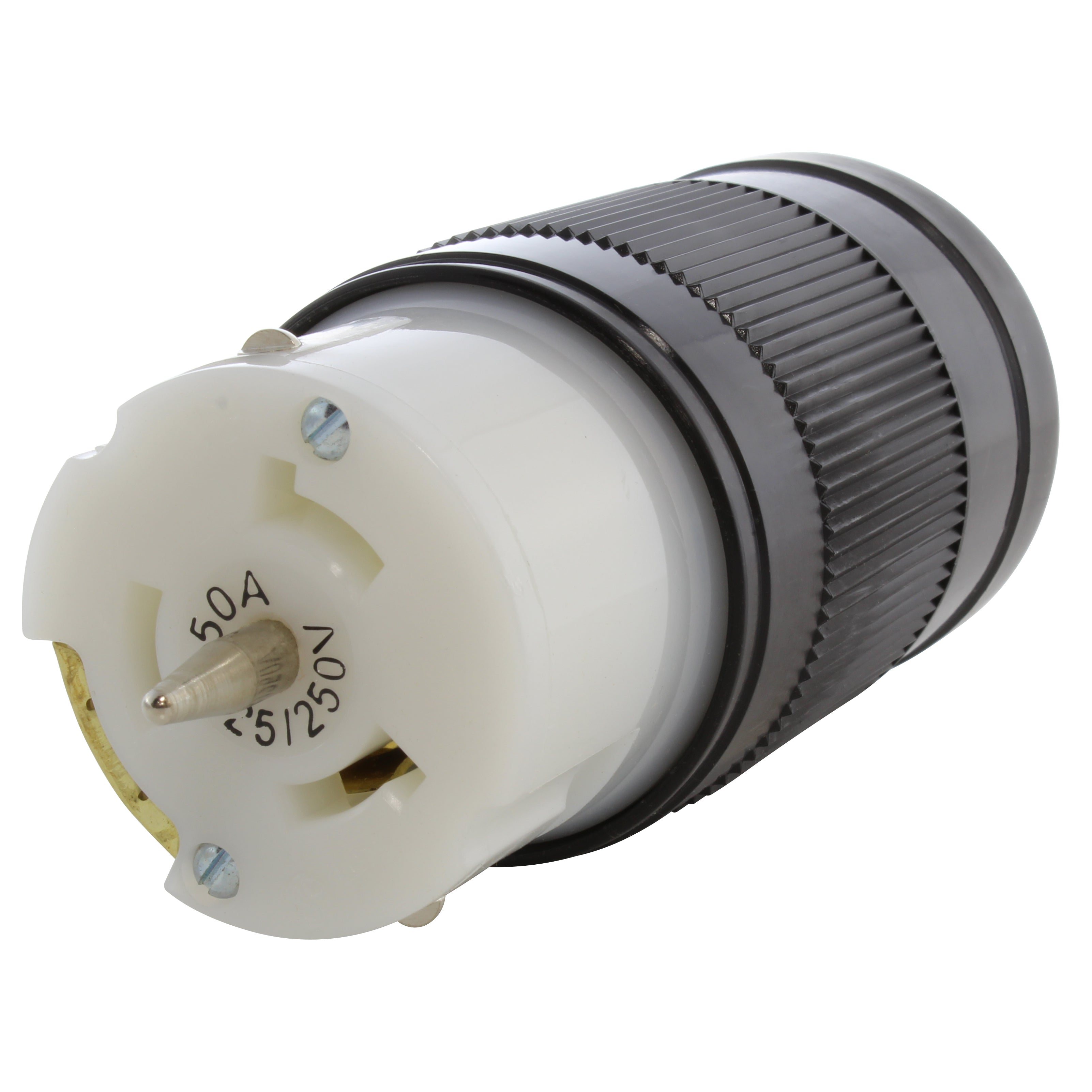
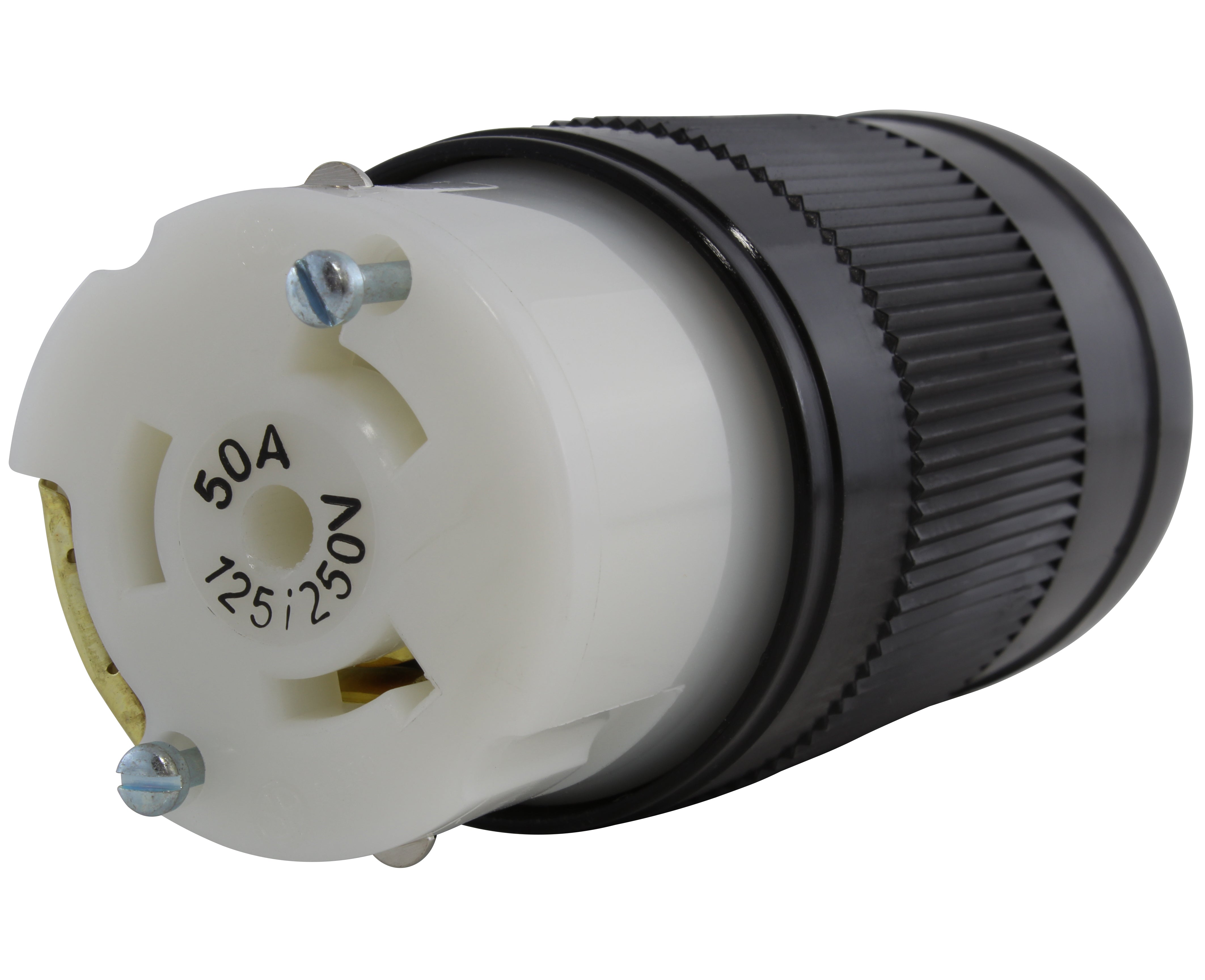
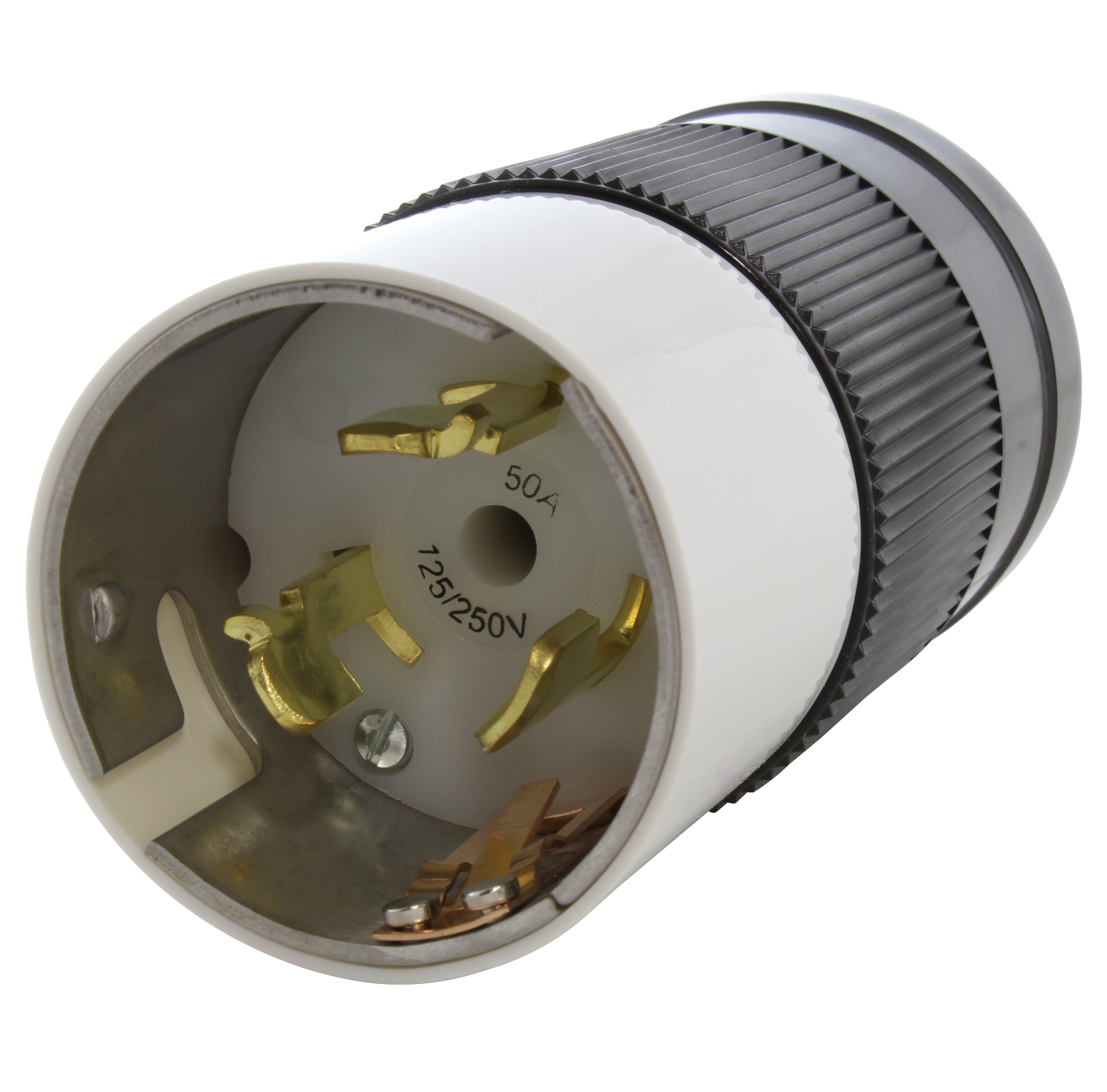
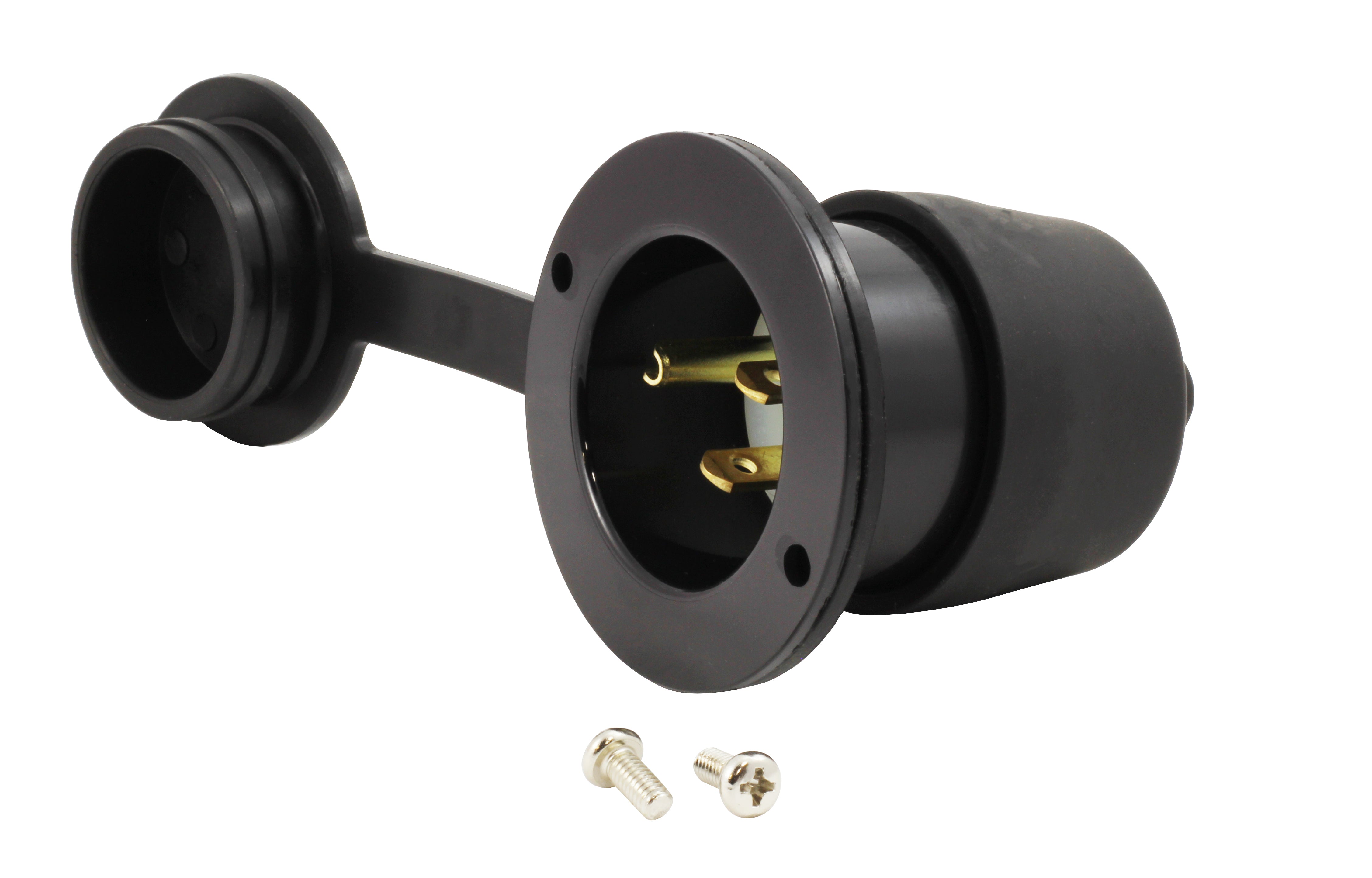
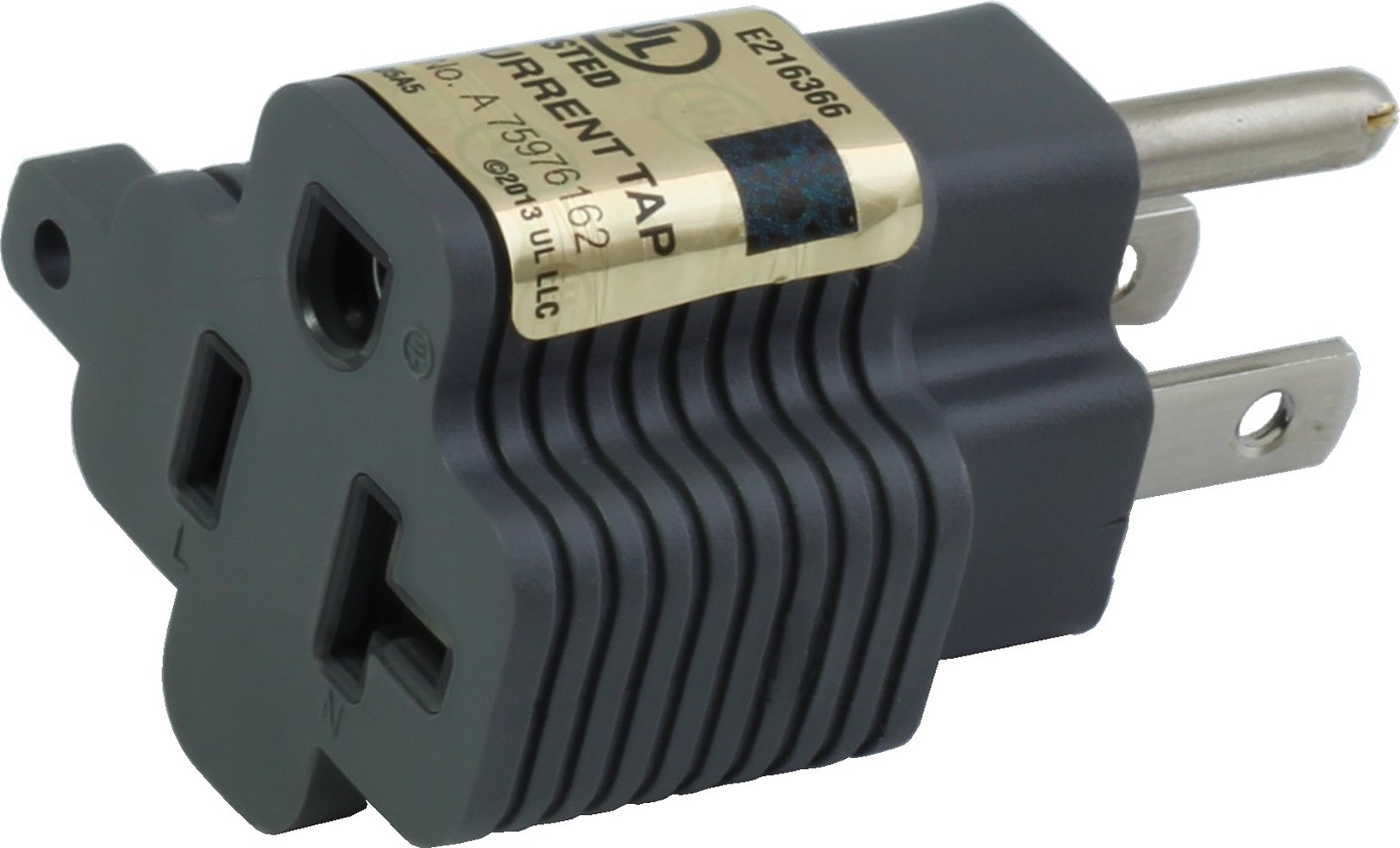
![AC WORKS® [ADV104] 3-Prong Heavy-Duty V-DUO Household Outlet Adapter](http://acworks.com/cdn/shop/products/ADV104-0.jpg?v=1605738768&width=3128)
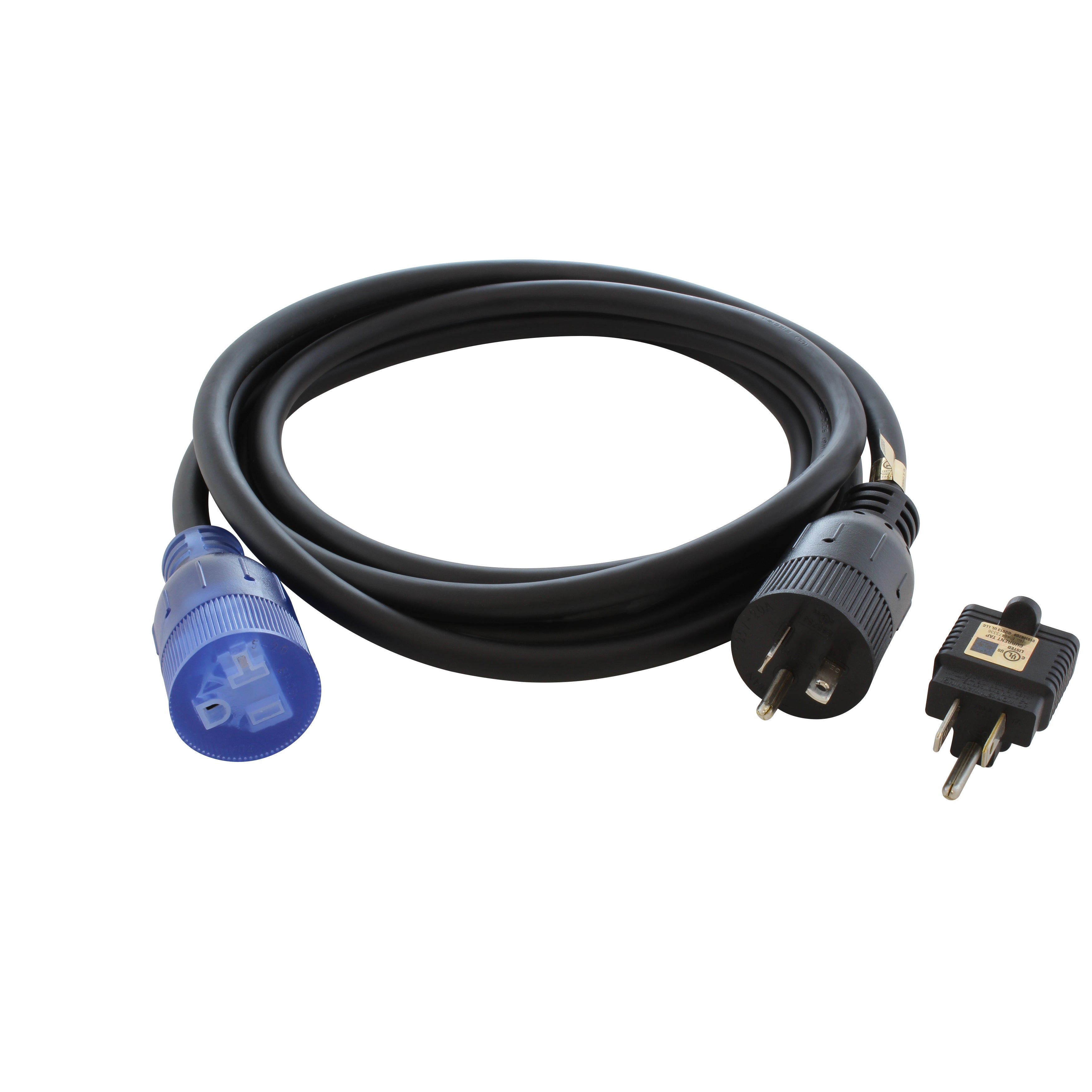
![AC WORKS® [XH515520] 15A to 15/20A 125 Volt Plug Adapter with ETL Safety Approval](http://acworks.com/cdn/shop/files/XH515520-0_daea425a-f439-48df-bb75-052167057f12.jpg?v=1729091519&width=2500)



Share:
Air Conditioning and Heating Units
The Little Green Wire
1 comment
Thanks! After reading several related articles elsewhere, I thought this one was clearest and easiest to understand. Many thanks again!